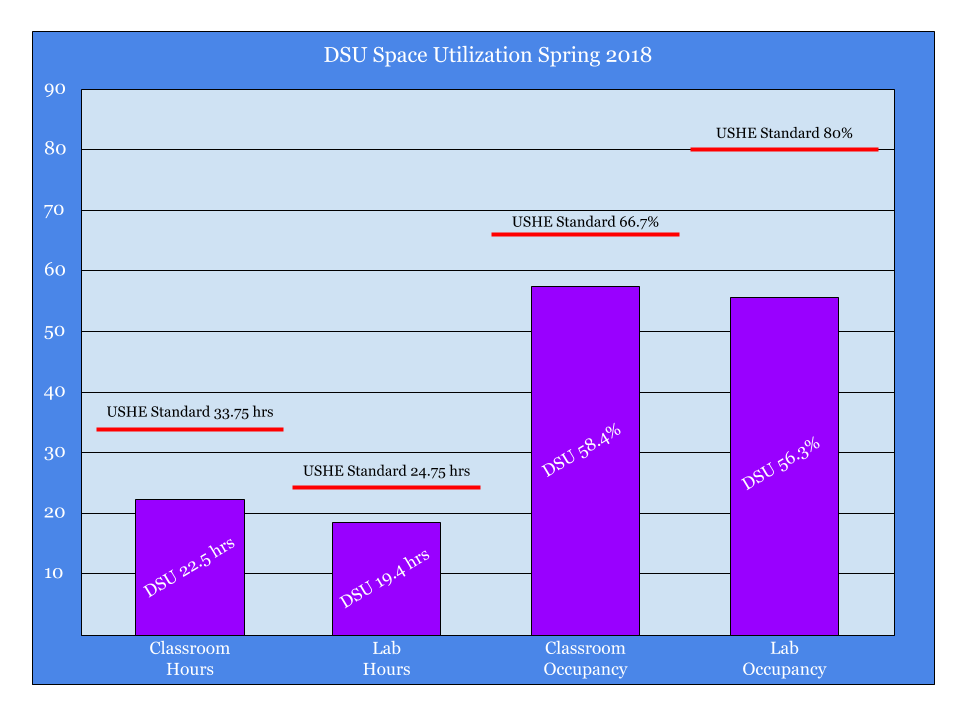Beginning in fall 2020, Dixie State University will likely offer more class times in the morning, late afternoon and evening.
DSU plans on offering more class times so it can meet state standards on space utilization by using classrooms and labs more frequently.
Until state standards are met in its current buildings, DSU can’t have any new buildings approved, but Provost Michael Lacourse, vice president of academic affairs, said that likely won’t be a problem because the DSU administration is in the process of creating a solution.
“For instance, a lot of students like having classes in the morning, but we don’t typically have a lot of classes offered from 9 a.m-1 p.m.,” Lacourse said. “That’s what we’re working out right now.”
According to the Utah System of Higher Education 2018 Annual Report, USHE “adopted a space utilization policy to provide a system-wide standard for the effective utilization of classrooms and teaching laboratories as well as centralized scheduling and an annual reporting requirement.”
Vicki Peacock, central scheduling and space utilization manager, said classrooms must be used 33.75 hours per week with a seat occupancy rate — percentage of students using the rooms — of 66.7% and labs must be used 24.75 hours per week with a seat occupancy rate of 80% to meet USHE’s standards.
According to the latest report on space utilization from USHE, DSU has fallen short of all four of those standards since at least summer 2017. Statistics from spring 2018 place DSU’s classroom use at 22.5 hours with a seat occupancy of 58.4%, while its lab use was placed at 19.4 hours and 56.3%.
So, classroom use needs to be increased by roughly 10 hours and 8.3%, while lab use needs to be increased by roughly five hours and 23.7% to meet USHE standards.
Solutions suggested by DSU in its report to USHE include increasing enrollment and retention, expanding graduate–level courses and programs, designating certain classrooms for community use and certain labs for open study hours, placing smaller courses in smaller classrooms, and ensuring collaboration between Central Scheduling and academic colleges.
Until state standards are met in its current buildings, DSU can’t have any new buildings approved, but Provost Michael Lacourse, vice president of academic affairs, said that likely won’t be a problem because the DSU administration is in the process of creating a solution.
“We’re working on a lot of interesting things where scheduling is concerned,” Lacourse said. “We’re also working on apps and programs to better help students plan their schedules, including [an app] that will help students plan out all four years of their degree.”
Pamela Cantrell, associate provost for academic and budget planning, said the proposal for how best to alter class schedules is still a work in progress and will be available this week.
This is a developing story. Read next week’s story to find out more about the proposal and what it will entail.


